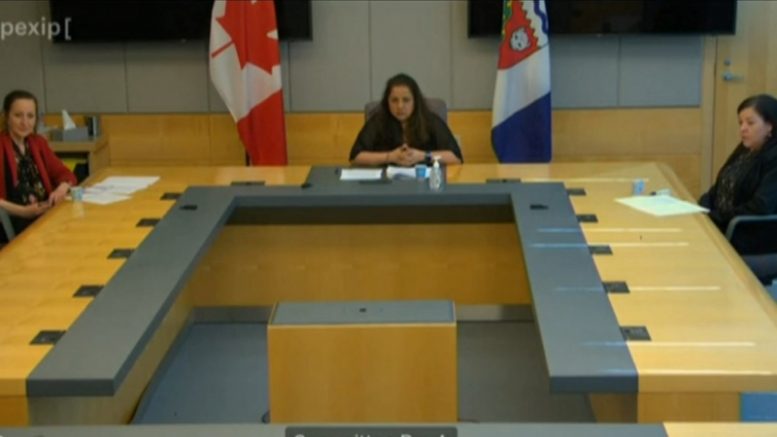Despite having no active cases of COVID-19 in the NWT, Chief Public Health Officer Dr. Kami Kandola has tightened the travel restrictions at the border.
In an amended order that kicked in on Monday at 4 p.m., essential workers, corrections officers and construction workers that come into the NWT must now self-isolate for 14 days.
Additionally, these workers must now report every four days, beginning on day two of their self-isolation, to Protect NWT.
In a news release, the territorial government said the new measures are to “mitigate the risks inherent in welcoming out-of-territory workers who may be traveling from locations where COVID-19 community spread has occurred, and track where they are and what they’re doing when in the NWT.”
During a news conference on Tuesday, Dr. Kandola was asked how many essential workers were coming over the border.
“The whole point of putting this order in place is so we can track how many essential service workers are coming through NWT and that was an identified gap,” she said.
Employers can request an exemption from the new measures but Dr. Kandola did not say whether she had granted any yet.
Last measures?
Dr. Kandola said these could be the last measures NWT residents see if things stay the same with no new cases and “no evidence of community spread”.
However, that doesn’t mean she’ll be lifting the orders any time soon.
“It’s not time to look back and congratulate ourselves,” she said. “It’s time to look forward and be prepared possibly for a second and third wave.”
CKLB asked if these second and third waves were inevitable.
“As long as we don’t have community transmission and as long as we have tight border security, we may be at a position watching other jurisdictions in the country go through the second and third wave,” said Dr. Kandola.
Throughout the briefing, Dr. Kandola mentioned multiple times that additional information would be coming in the near future on how officials would phase out the orders.
Essentially, her office would gradually loosen the restrictions and allow for “higher risk” situations like mass gatherings.
Dr. Kandola reiterated that the highest risk to the NWT is at the border. As such, “Any restrictions around the border and travel would have to remain in place and this would be likely until we get an effective vaccine.”
Experts have estimated a vaccine is at least a year away.
Ongoing public health emergency and state of emergency
On Tuesday, the territorial government announced it would be extending both the public health emergency and state of emergency until May 12.
Both can be renewed on a two-week basis with no limit to the number of extensions.
The public health emergency allows Dr. Kandola to introduce orders like those banning mass gatherings and restricting travel.
“Nationwide spread is the biggest risk of expanding spread within the Northwest Territories and Dr. Kandola has indicated she will continue to recommend extensions to the Public Health Emergency until the situation has changed considerably across Canada,” said the territorial government in a notice.
Extending the state of emergency keeps the Emergency Management Organization in charge of responding to the pandemic and supporting Dr. Kandola’s orders, like monitoring the border.
Francis was a reporter with CKLB from January 2019 to March 2023. In his time with CKLB, he had the immense pleasure and honour of learning about northern Indigenous cultures.









